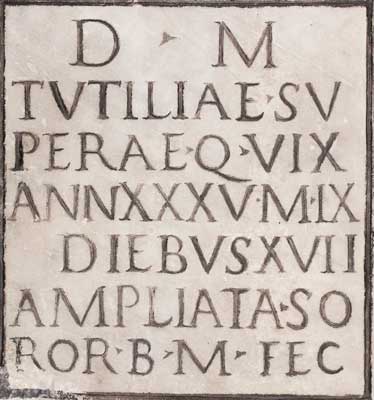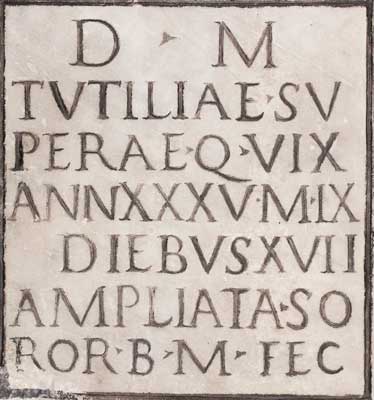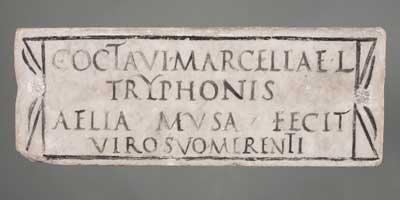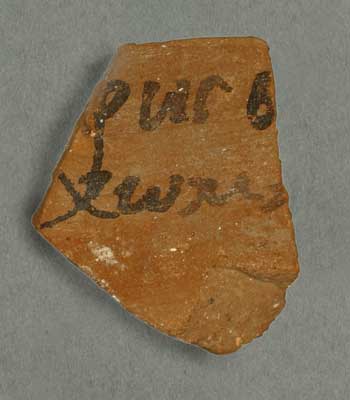
The Modern European Alphabet

This tombstone inscription features a dedication in Latin, and dates to around the 1st century AD. Logie Collection Acc# 113.71
When we say something is "written in stone" we refer not just to the Roman habit of putting inscriptions on buildings, but to their meticulous record-keeping and love of writing. The modern alphabet used throughout Europe and the New World is a legacy of the Romans.
The origins of this alphabet are debated, but the Phoenicians, who traded valuable purple dye all over the Mediterranean Sea, get most of the credit. They had a 22-character phonetic alphabet that was based on an early Hebrew script and used Hebrew names for the letters. The earliest Phoenician inscriptions, from Byblos, date to around 1100 BC. However their alphabet, which consisted purely of consonants, probably developed several centuries earlier.
The ancient Greeks, possibly a few that were living in Byblos, derived their letters from the Phoenicians. This may have occurred in the 8th century BC, but may possibly have happened even earlier. Phoenicians wrote from left to right, and so did the Greeks (mostly).
When the Greeks established colonies around the Mediterranean Sea in the 8th century, they brought their alphabet with them. The Romans, Etruscans and other groups living in Italy adopted this Greek alphabet, but around 500 BC the Romans modified the letters to those that are now familiar to us.
The Romans used writing everywhere. It appears on maps, mile-markers, on buildings, and on everyday objects such as wedding gifts, pottery and personal items. They used it to keep records, advertise the achievements of the emperor, and make religious dedications. They were prolific writers of philosophy, poetry, speeches, history and more. Romans who could afford it erected tombstones for themselves and their loved ones.



